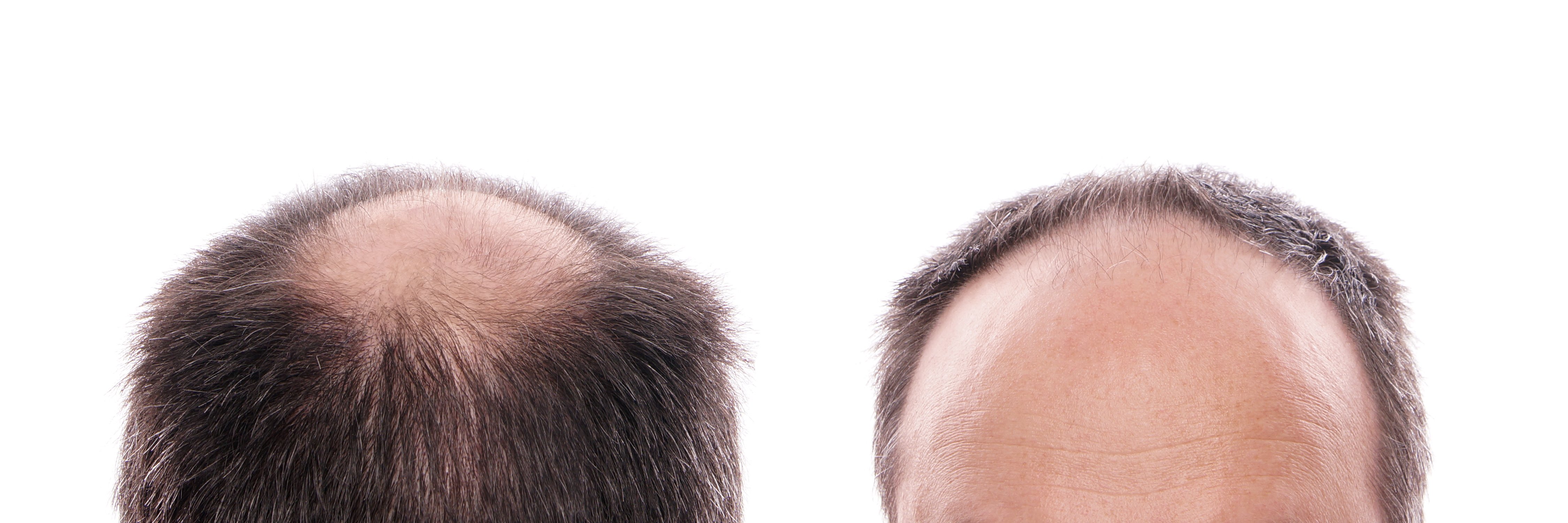Why Does Finasteride Cause Shedding?

Don’t worry if you notice your hair shedding when you start using Finasteride.
I know it seems like a catch-22. Hair loss medication that causes you to lose more hair. What’s that all about?
The good news is it’s a temporary reaction and shedding should stop after a few months of using Finasteride.
Why would I need finasteride?
Hair loss is a sensitive issue for lots of men.
Male pattern baldness is the most common form of pattern hair loss. Research shows that almost half of men will experience male pattern baldness by the time they’re 40. It’s a very common issue.
Finasteride is a safe and tolerable medication. It inhibits the enzyme responsible for the conversion of testosterone to dihydrotestosterone (DHT). DHT is the hormone that causes hair loss in males.
Basically, Finasteride reduces the amount of DHT produced and allows the hair to regrow.
But it causes shedding?
Some people find that Finasteride causes shedding more quickly in the first couple of months.
This is actually a positive sign. It shows that Finasteride is starting to work. The older, damaged hairs are making way for new, stronger strands.
You won’t see any noticeable improvements initially. After six months you should find that the hair is starting to grow back more quickly. It should be thicker and stronger in appearance and the rate at which hair falls out should be reduced.
Basically, don’t worry if you experience shedding early on. This is normal and should stop after a few months of using Finasteride.
Can other factors cause shedding?
Yes, factors other than finasteride can cause shedding.
Excessive shedding can be caused by factors like extreme malnutrition, chronic stress, serious illnesses and certain medications. The technical term for this is Telogen Effluvium.
Like finasteride, the effects of these factors should be temporary. Shedding occurs in response to the triggering factor and should ease when the factor stops.
What happens if I stop taking finasteride?
Don’t be tempted to stop taking finasteride if you experience shedding early on. The natural balding process will then resume. You will also lose any of the hair that has been regrown during the treatment.
If you’re on the treatment, you should take a tablet every day. Take it at the same time every day for the best results. The level of finasteride in your body will decrease if you leave it too long between doses. This will limit its effectiveness.
Summary
Finasteride can cause shedding initially. This is temporary and shows that the drug is starting to work. Contact a healthcare professional for advice if the shredding does not stop after a few months.
References
- Drake LA, Dinehart SM, Farmer ER, Goltz RW, Graham GF, Hordinsky MK, Lewis CW, Pariser DM, Webster SB, Whitaker DC. Guidelines of care for androgenetic alopecia. American Academy of Dermatology. Journal of the American Academy of Dermatology 1996;35:465.
- Olsen EA. Female pattern hair loss. Journal of the American Academy of Dermatology 2001;45:S70-S80.
- Gormley GJ, Stoner E, Bruskewitz RC, Imperato-McGinley J, Walsh PC, McConnell JD, Andriole GL, Geller J, Bracken BR, Tenover JS. The effect of finasteride in men with benign prostatic hyperplasia. New England Journal of Medicine 1992;327:1185-91.
- Kaufman KD, Olsen EA, Whiting D, Savin R, DeVillez R, Bergfeld W, Price VH, Van Neste D, Roberts JL, Hordinsky M. Finasteride in the treatment of men with androgenetic alopecia. Journal of the American Academy of Dermatology 1998;39:578-89.
- Libecco JF, Bergfeld WF. Finasteride in the treatment of alopecia. Expert Opinion on Pharmacotherapy 2004;5:933-40.
- Van Neste D, Fuh V, Sanchez‐Pedreno P, Lopez‐Bran E, Wolff H, Whiting D, Roberts J, Kopera D, Stene JJ, Calvieri S. Finasteride increases anagen hair in men with androgenetic alopecia. British Journal of Dermatology 2000;143:804-10.
- Stoner E. The clinical development of a 5α-reductase inhibitor, finasteride. The Journal of Steroid Biochemistry and Molecular Biology 1990;37:375-78.
- Mysore V. Finasteride and sexual side effects. Indian Dermatology Online Journal 2012;3:62.
- Courtois M, Loussouarn G, Hourseau C, Grollier JF. Hair cycle and alopecia. Skin Pharmacology and Physiology 1994;7:84-89.
- Alonso L, Fuchs E. The hair cycle. Journal of Cell Science 2006;119:391-93.
- Hadshiew IM, Foitzik K, Arck PC, Paus R. Burden of hair loss: stress and the underestimated psychosocial impact of telogen effluvium and androgenetic alopecia. Journal of Investigative Dermatology 2004;123:455-57.
- Harrison S, Sinclair R. Telogen effluvium. Clinical and Experimental Dermatology: Clinical dermatology 2002;27:389-95.
Assured Pharmacy is not liable for the currency or accuracy of the information contained in this blog post. For specific information about your personal medical condition, please contact our healthcare professionals for advice on [email protected].

